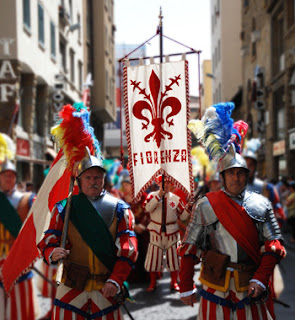Krystal Rollins is a 20-year old college student from Queens, New York. She is currently studying abroad in Florence, Italy for four months and receiving twelve credits from her University, SUNY Purchase. Krystal is going through the FUA program (Florence University of Arts) at their Corso Tintori campus where they created a schedule for her to take a variation of different classes that pertain to her major. One of her passions is singing, so her program arranged for her to take a class at ISTITUTO EUROPEO (a music, art, culture, and language school). At ISTITUTO EUROPEO she takes “Special topics in music: Music of the Naples, Renaissance, and the Baroque”, yes, if you are wondering... that is one class. Below is a brief interview of her experience so far.
Q1:What is difficult to adjust to Italy?
A1: The first two weeks it was difficult, but mainly because of the language barrier. I love to communicate with people, but considering I had no prior Italian language background my speaking was limited. The food was another adjustment that I had to get use to and the fact that shoe stores do not carry sizes over 41, and unfortunately I am a 41½; therefore no shoe shopping in Italy for me.
Q2: How is your class at ISTITUTO EUROPEO?
A2: I recently switched to a new teacher, her name is Valeria Ferri. She is wonderful; she is kind, easygoing, and explains very clearly how to apply different techniques to my voice. My class is once a week for 45 minutes, the short class is designed so I do not over work my voice, and have the ability to practice the techniques later on my own.
Q3: Would you make any suggestions or recommendations for the incoming students studying in Italy?
A3: You have to know exactly what you want and do not give up until you get it. The Italian culture in general, I mean no disrespect, is very laid back and vague; therefore when it comes to explaining what you want, if you are not clear and persistent then there is no guarantee you will get what you are looking for. This goes for other countries as well, because if someone is thrown into a new culture there are bound to be bumps in the road, my advice would be to accept that nothing is perfect and eventually solutions will present themselves.
INTERVIEW DONE BY JUSTINE TRUSSO (An Intern at ISTITUTO EUROPEO)
FOR MORE INFORMATION ON THE MUSIC PROGRAM
email us at: info@istitutoeuropeo.it
Do you want to contact Krystal and ask her questions regarding her experience? Just ask us!
























